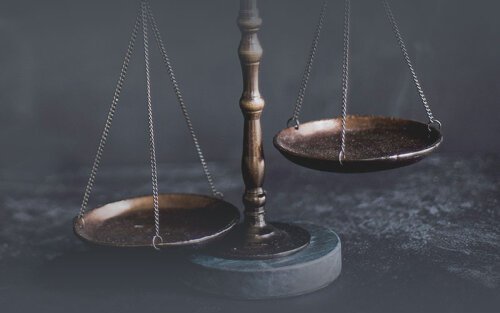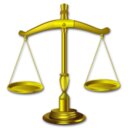Best Credit Repair Lawyers in Republic of Lithuania
Share your needs with us, get contacted by law firms.
Free. Takes 2 min.
Or refine your search by selecting a city:
List of the best lawyers in Republic of Lithuania
About Credit Repair Law in Republic of Lithuania:
Credit repair in the Republic of Lithuania refers to the process of improving an individual's creditworthiness by addressing and resolving any issues on their credit report. This can involve disputing inaccurate information, negotiating with creditors, and implementing strategies to improve credit scores. The laws surrounding credit repair in Lithuania are designed to protect consumers' rights and ensure fair and transparent practices in the credit industry.
Why You May Need a Lawyer:
There are several situations where you may need a lawyer to assist with credit repair in Lithuania. These include disputes with creditors, errors on your credit report, identity theft, and dealing with debt collectors. A lawyer can help you navigate the complex legal processes involved in credit repair and advocate for your rights as a consumer.
Local Laws Overview:
In Lithuania, the main laws governing credit repair are the Law on Consumer Credit and the Law on Credit Institutions. These laws outline the rights and responsibilities of both consumers and creditors when it comes to credit agreements, credit reporting, and debt collection. It is important to be aware of these laws and how they may impact your credit repair efforts.
Frequently Asked Questions:
1. Can I dispute inaccurate information on my credit report?
Yes, you have the right to dispute any inaccuracies on your credit report with the credit bureau responsible for reporting the information. It is recommended to do this in writing and provide any supporting documentation to back up your claim.
2. How long does negative information stay on my credit report?
In Lithuania, negative information such as late payments or defaults can stay on your credit report for up to 5 years. It is important to address and resolve these issues as soon as possible to improve your credit score.
3. Can a lawyer help me negotiate with creditors?
Yes, a lawyer can help negotiate with creditors on your behalf to reach a settlement or repayment plan that is favorable to you. They can also provide legal advice on your rights and options in dealing with creditors.
4. What are my rights under the Law on Consumer Credit?
The Law on Consumer Credit in Lithuania outlines your rights as a consumer when entering into credit agreements. These rights include the right to receive clear and transparent information about the terms of the credit agreement, the right to cancel the agreement within a certain period, and the right to dispute any inaccuracies on your credit report.
5. How can I protect myself from identity theft?
To protect yourself from identity theft, it is important to regularly monitor your credit report for any unauthorized activity. You can also place a freeze on your credit report to prevent new accounts from being opened in your name without your permission.
6. What should I do if a debt collector violates my rights?
If a debt collector violates your rights under the Law on Credit Institutions, you can file a complaint with the State Consumer Rights Protection Authority or seek legal assistance to address the issue. Debt collectors are required to follow strict guidelines when attempting to collect a debt.
7. How can I improve my credit score?
To improve your credit score, you can pay your bills on time, keep your credit card balances low, and avoid opening new credit accounts unnecessarily. It is also important to regularly check your credit report for any errors that may be negatively impacting your score.
8. Are there any resources available to help me with credit repair?
There are several organizations and governmental bodies in Lithuania that provide resources and information on credit repair, including the State Consumer Rights Protection Authority, the Bank of Lithuania, and consumer rights advocacy groups. These resources can be helpful in understanding your rights and options when it comes to credit repair.
9. What are the consequences of defaulting on a credit agreement?
If you default on a credit agreement in Lithuania, you may face penalties such as additional fees, interest charges, and legal action by the creditor. It is important to address any issues with your credit agreement as soon as possible to avoid further consequences.
10. How can I find a reputable credit repair lawyer in Lithuania?
To find a reputable credit repair lawyer in Lithuania, you can ask for recommendations from friends or family, research online reviews, and schedule consultations with multiple lawyers to discuss your specific needs and concerns. It is important to choose a lawyer who has experience in credit repair and a track record of success in helping clients resolve credit issues.
Additional Resources:
For more information on credit repair in Lithuania, you can visit the website of the State Consumer Rights Protection Authority at www.vvtat.lt. You can also contact consumer rights advocacy groups such as the Lithuanian Consumers' Association for guidance and support.
Next Steps:
If you are in need of legal assistance with credit repair in Lithuania, you should consider contacting a reputable credit repair lawyer who can provide expert advice and representation. It is important to act quickly to address any credit issues and protect your rights as a consumer. Your lawyer can help you navigate the complex legal processes involved in credit repair and work towards a favorable outcome for your credit situation.
Lawzana helps you find the best lawyers and law firms in Republic of Lithuania through a curated and pre-screened list of qualified legal professionals. Our platform offers rankings and detailed profiles of attorneys and law firms, allowing you to compare based on practice areas, including Credit Repair, experience, and client feedback.
Each profile includes a description of the firm's areas of practice, client reviews, team members and partners, year of establishment, spoken languages, office locations, contact information, social media presence, and any published articles or resources. Most firms on our platform speak English and are experienced in both local and international legal matters.
Get a quote from top-rated law firms in Republic of Lithuania — quickly, securely, and without unnecessary hassle.
Disclaimer:
The information provided on this page is for general informational purposes only and does not constitute legal advice. While we strive to ensure the accuracy and relevance of the content, legal information may change over time, and interpretations of the law can vary. You should always consult with a qualified legal professional for advice specific to your situation.
We disclaim all liability for actions taken or not taken based on the content of this page. If you believe any information is incorrect or outdated, please contact us, and we will review and update it where appropriate.
Browse credit repair law firms by city in Republic of Lithuania
Refine your search by selecting a city.















